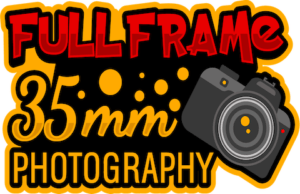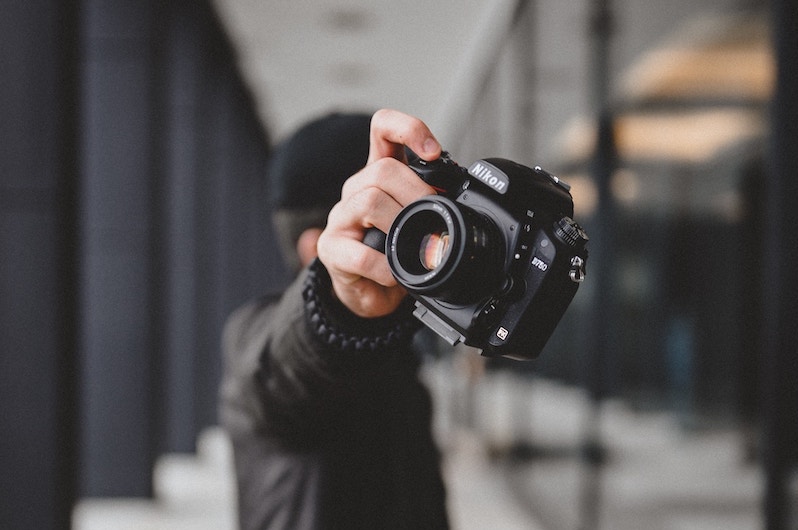Is Full-Frame Really Worth It?
“Should I Buy a full-frame camera?”. This is an inevitable question for hobbyists and amateur photographers who feel that they need to upgrade from their smartphone or smaller sensor DSLR and mirrorless cameras.
Professionals, by and large, choose to shoot with full frame cameras mainly due to their larger sensors, which in turn lead to better low light performance and higher dynamic ranges.
Although, considerably more expensive than APS-C and M43 sensor cameras. That said, does that mean you’ll be able to take better photos?
To help you make the decision to upgrade, I’d like to examine the advantages and disadvantages of full-frame camera systems.
What Is a Full Frame System?
Full frame cameras have a sensor that is the same size as the industry-standard 35mm film cameras of days gone by.
The surface area of a full-frame sensor is more than 2.5 times larger than an APS-C sensor and 4 times that of a micro four-thirds sensor.
Naturally, this larger sensor is able to capture more light and allows for larger pixels for any given resolution, when compared to smaller sensor cameras. This trade-off results in a larger, heavier body.
Full-frame cameras don’t have a crop factor because the 35mm format has been the designated standard size. The lens system of full-frame cameras offers more choices than crop sensor systems.
However, crop sensor systems have caught up. For instance, the M43 lens systems from Olympus and Panasonic cover most of the focal lengths that full-frame lens systems do.
What Benefits Does Full Frame Have?
Full-frame has numerous benefits, which ultimately results in better quality images for its users.
Better Performance in Low Light
The full frame’s allure is the better low light performance a photographer can attain when compared to a smaller sensor. The larger pixels capture more light allowing them to produce cleaner images.
The larger sensor will let you use higher ISO without the consequence of noise several stops higher than on cropped sensor cameras.
Better Dynamic Range
The dynamic range of full-frame cameras is much better than cropped cameras. The dynamic range measures how the spectrum of light and dark areas in an image that a sensor can capture.
A camera with a limited dynamic range could mean that when you expose your photo for the shadows, you might lose highlight details.
A wider dynamic range gives you a better chance to grab both shadow and highlight details more easily, without resorting to HDR photography.
This advantage is less noticeable than noise performance because the dynamic range has been advancing incrementally with the introduction of new sensors.
The latest crop sensors can produce images on par with full-frame cameras.
Shallower Depth of Field
A major attraction to full-frame cameras is due to the superior bokeh they can output.
They can produce much softer backgrounds and foregrounds because of their razor-thin depth of field (DOF). This is more problematic with a cropped sensor camera.
While it isn’t the sensor that produces the shallower DOF, the physics of the architecture of the sensor and lens working together give it a definitive edge over the cropped competition.
Wider and narrower focal lengths allow you to use compression and bokeh by changing your position to your subject.
Better Lens Choice
A high-end camera is wasted if you don’t use quality glass. It is often said that you should invest in lenses more so than the camera bodies, as the lenses are crucial to having killer images.
They will also outlast your camera body many times over. Full frame systems offer the most extensive range of lenses of any system.
You will have no drama building your perfect lens arsenal.
Professional Bodies
Full frame sensors used to be restricted to professional photographers because of their high prices.
However, in recent years, the number of hobbyists and prosumers purchasing full-frame cameras has increased dramatically.
Why You Might Upgrade to a Full Frame Camera System :
- Better resolution
- Faster auto-focus tracking
- More responsive
- Bigger and brighter OVF/EVF
- Better weatherproofing and durability
- Better battery life
- Dual memory card slots (not all models)
- Faster burst mode with a bigger buffer
Recently, the offerings from APS-C and micro
Why You Shouldn’t Buy a Full-Frame Camera
Although full-frame cameras are considered better by most professionals, it doesn’t necessarily mean that you need to buy one. Here are some reasons that you might be wise to refrain from upgrading.
Much More Expensive
A common barrier that stops many people from upgrading to full-frame cameras is the high cost of entry, not only the cameras but especially the lenses. Their expense can be eyewatering!
The latest full-frame cameras from Sony and Canon have lowered the bar for entry as far as camera bodies are concerned, they still don’t address the high price of the lenses.
However, these cheaper models come with performance compromises to meet the lower price point.
The image quality is still fantastic, and it seems that the compromises are made with the video capabilities, number of card slots, and inferior build quality. They are still a great way to enter the full-frame realm.
You Might Require Telephoto Lenses
Because full-frame has no crop factor, there can be a perceived disadvantage when compared to cropped cameras when shooting telephoto.
Cropped sensor cameras allow you to attain the same FOV with considerably smaller and cheaper lenses.
For example, Olympus has a 300mm f4 telephoto lens which is equivalent to 600mm FOV and f8 DOF in full-frame terms.
This is portable and will take beautiful, high-quality images at a fraction of the price of a full-frame equivalent.
The deeper DOF can be an advantage in many situations, and the low light advantage is negated because most wildlife photography is done in daylight.
Full Frames are Bigger, Heavier, and More Complicated
As mentioned earlier, most professionals opt for full-frame systems, leaving cropped sensors for the prosumers.
The abilities of these two groups are not always that different, but there can be distinct differences in images of the systems in certain shooting conditions.
Full-frame cameras are usually bigger, heavier, and more complicated to master than their smaller counterparts.
If you’re a paid professional, then this shouldn’t be much of an issue, and you will choose the system that maximizes your results.
But for the casual photographer who likes to take family photos or snapshots during travels, the full-frame system may be a cumbersome overkill.
If you are into Street Photography, then carrying a large, chunky camera and lens will bring unwanted attention, defeating the purpose of taking candid photographs of your targeted subjects.
Full Frame isn’t a Panacea to Better Photography
As I’m sure you’ve heard before, the camera is not going to make you a better photographer. It will help you have better quality images and allow you to shoot in more demanding conditions with confidence.
Ultimately, whether the final image will be poor, average or excellent, will be dependent on your knowledge of photography (composition, lens attributes, lighting, etc.) and your competence with your camera settings will determine the quality of your images.
Just be shooting with a full-frame camera doesn’t guarantee any improvement in your photography.
An upgrade should be postponed if you are still honing your photography skills. Learn how to use the gear you have now before making the jump to a more expensive system.
Chances are that your camera now is more than good enough to take excellent pictures.
Still Asking “Should I Buy a Full Frame Camera?”
If you are, then I’d say “It depends.” It depends on many factors. If you have the finances to make the leap, that’s great. But do you really need to spend that extra money? And is the difference really worth it?
If you are a casual shooter, then I honestly believe that the full-frame system may not be the best choice, and you would probably be better off with an APS-C or M43 camera system.
However, there is a cheap way to enter the full-frame arena, and that is by buying older digital cameras and lenses.
They may not be cutting-edge, but they will still take great photos and let you decide whether a full-frame is the road you want to go down.
A Nikon D700 or Canon 5D can be picked up very cheaply secondhand, as well as the older lenses.
If you think by purchasing the latest camera you’ll instantly become a better photographer, I’d recommend that you first improve your photography skills and stick with your current system.
If you are planning to make a living as a sports or wedding photographer, then I’d recommend the full-frame system without reservation.
Always Enjoy Your Photography
The number of camera systems available today is numerous. They all will take photographs that you can be proud to show off to your friends and family.
There is no ideal camera, but there is a perfect camera for you. My advice to you is to honestly consider your needs and aspirations, and buy the camera that meets them. Most important of all, enjoy your photography!


